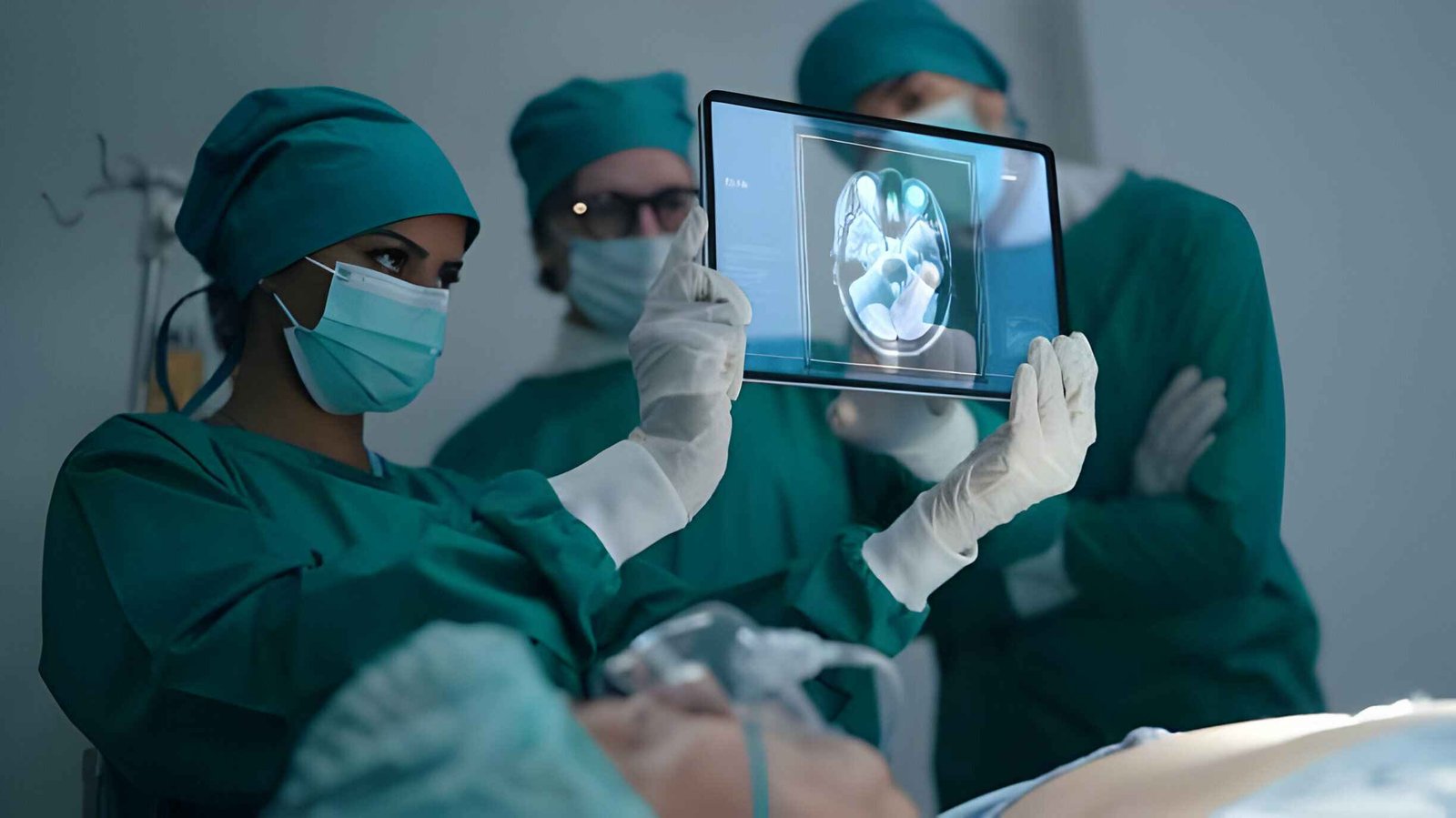In the dynamic landscape of modern industries and the continuous advancement of production technology plays a pivotal role in shaping economic progress & driving innovation. From traditional manufacturing processes to cutting-edge automation and digitalization and improvements in production technology have led to significant shifts in how goods and services are produced, distributed, & consumed. This article delves into the transformative impact of technological advancements on various sectors and exploring the benefits and challenges, & future prospects of a rapidly evolving production landscape.
Evolution of Production Technology:
The journey of production technology evolution can be traced back to the Industrial Revolution and marking a crucial turning point in human history. The advent of steam power and mechanization, and assembly lines revolutionized manufacturing, leading to mass production and economic growth. Subsequent waves of technological advancements, including electricity, computing, & robotics, further accelerated the pace of change, ushering in the era of automation & digital manufacturing.
1. Automation and Robotics:
Automation has emerged as a cornerstone of modern production technology, enabling enhanced efficiency, precision, and scalability across industries. Robotics and powered by artificial intelligence and machine learning algorithms and has revolutionized manufacturing processes and from automotive assembly lines to semiconductor fabrication. Collaborative robots (cubits) have enabled human-machine collaboration and optimizing productivity and safety in manufacturing environments.
2. Digitalization and Industry 4.0:
The convergence of digital technologies with traditional manufacturing processes has given rise to the concept of Industry 4.0. Internet of Things devices and cloud computing, big data analytics, & augmented reality (AR) are reshaping production workflows, facilitating real-time monitoring, predictive maintenance, & data-driven decision-making. Smart factories equipped with interconnected systems are driving agility, customization, & sustainability in production.
3. Additive Manufacturing (3D Printing):
Additive manufacturing, commonly known as 3D printing, has emerged as a disruptive force in production technology. This innovative approach allows for the creation of complex geometries and rapid prototyping, and on-demand manufacturing of customized parts. Industries ranging from aerospace & healthcare to consumer goods are leveraging 3D printing to reduce lead times and minimize waste, & unlock new design possibilities.
Impact on Industries:
The adoption of advanced production technologies has had a profound impact on various sectors and revolutionizing traditional practices & unlocking new opportunities for growth & competitiveness.
1. Automotive Industry:
In the automotive sector, robotics & automation have optimized assembly processes and leading to higher production volumes, improved quality control, & reduced operational costs. Digitalization has enabled smart manufacturing practices and such as predictive maintenance and supply chain optimization and enhancing overall efficiency & customer satisfaction.
2. Healthcare and Biotechnology:
In healthcare and biotechnology and advancements in production technology have accelerated research and development cycles, leading to the rapid prototyping of medical devices, pharmaceuticals, & biologics. Additive manufacturing has enabled the creation of patient-specific implants, prosthetics, & tissue engineering solutions, revolutionizing personalized healthcare delivery.
3. Consumer Electronics:
The consumer electronics industry has witnessed significant transformations driven by production technology advancements. Miniaturization, automation, and digitalization have led to the mass production of smartphones and laptops, & other electronic devices with enhanced performance & functionality. Agile manufacturing practices have enabled faster time-to-market & continuous product innovation.
4. Aerospace and Defense:
In aerospace & defense, precision engineering & additive manufacturing technologies have revolutionized aircraft & spacecraft manufacturing. Digital twins & simulation tools have enabled virtual prototyping and testing, reducing development cycles & improving safety standards. Supply chain digitization has enhanced collaboration and transparency across global aerospace ecosystems.
Benefits of Improved Production Technology:
The continuous improvement of production technology brings forth a multitude of benefits for businesses, consumers, & society at large.
1. Enhanced Efficiency and Productivity:
Advanced automation, robotics, & digitalization streamline production workflows, leading to higher efficiency, productivity, & output quality. Real-time monitoring & data analytics optimize resource allocation, minimize downtime, & improve overall operational performance.
2. Cost Reduction and Waste Minimization:
Optimized manufacturing processes and just-in-time inventory management, and predictive maintenance strategies help reduce production costs & minimize waste generation. Additive manufacturing enables on-demand production and eliminating the need for extensive tooling & reducing material wastage.
3. Customization and Innovation:
Production technology advancements enable mass customization & rapid prototyping, allowing businesses to cater to diverse customer needs & preferences. Digital design tools & collaborative platforms foster innovation & creativity and leading to the development of breakthrough products & solutions.
4. Sustainability and Environmental Impact:
Efficient resource utilization and energy-saving technologies, & sustainable materials contribute to environmentally friendly production practices. Additive manufacturing & digital supply chain management reduce carbon footprints, promote circular economy principles, & support sustainable development goals.
Challenges and Considerations:
While the benefits of improved production technology are undeniable and there are several challenges & considerations that industries must navigate to fully harness its potential.
1. Skills and Workforce Development:
The rapid pace of technological advancement requires continuous upskilling & reskilling of the workforce to effectively operate and maintain advanced production systems. Collaborative human-machine interfaces & digital training programs play a crucial role in building a skilled workforce for the future.
2. Cybersecurity and Data Privacy:
The interconnected nature of digital manufacturing ecosystems exposes them to cybersecurity threats and data breaches. Robust cybersecurity measures, data encryption, & privacy protocols are essential to safeguard sensitive production data and intellectual property rights.
3. Regulatory Compliance and Standards:
Adherence to regulatory compliance, industry standards, & ethical guidelines is paramount in deploying advanced production technologies responsibly. Regulatory frameworks must evolve to address emerging challenges related to data governance, safety standards, & environmental regulations.
4. Digital Divide and Inclusivity:
Addressing the digital divide and ensuring inclusivity in technology adoption is essential to prevent socioeconomic disparities. Accessible technologies, digital literacy programs, & equitable opportunities for participation in the digital economy promote inclusivity & diversity in the workforce.
Future Outlook and Trends:
Looking ahead, the future of production technology promises continued innovation & transformative trends that will reshape industries & redefine business paradigms.
1. AI-Powered Automation:
Artificial intelligence (AI) & machine learning algorithms will drive autonomous decision-making, predictive maintenance, and adaptive manufacturing processes. AI-powered robotics & cognitive automation systems will enhance human-machine collaboration & operational agility.
2. Sustainable Manufacturing:
The pursuit of sustainable manufacturing practices will gain prominence, with a focus on renewable energy adoption, circular economy principles, & eco-friendly materials. Green technologies, such as carbon capture and recycling solutions, will mitigate environmental impact & drive sustainability initiatives.
3. Digital Twin and Virtual Reality:
Digital twin technologies & virtual reality simulations will revolutionize product design, testing, & optimization. Virtual manufacturing environments will enable virtual prototyping, supply chain visualization, and immersive training experiences for enhanced decision-making & risk management.
4. Blockchain Integration:
Blockchain technology will play a crucial role in ensuring transparency, traceability, & trust in supply chains. Smart contracts, decentralized ledgers, & digital identities will streamline transactions, enhance supply chain resilience, & combat counterfeit products and supply chain fraud.
Conclusion:
The evolution of production technology is a transformative journey that continues to redefine industries and business models, and consumer experiences. From automation and digitalization to sustainability and innovation, the advancements in production technology are driving economic growth and enhancing global competitiveness, & shaping a more connected and sustainable future.





